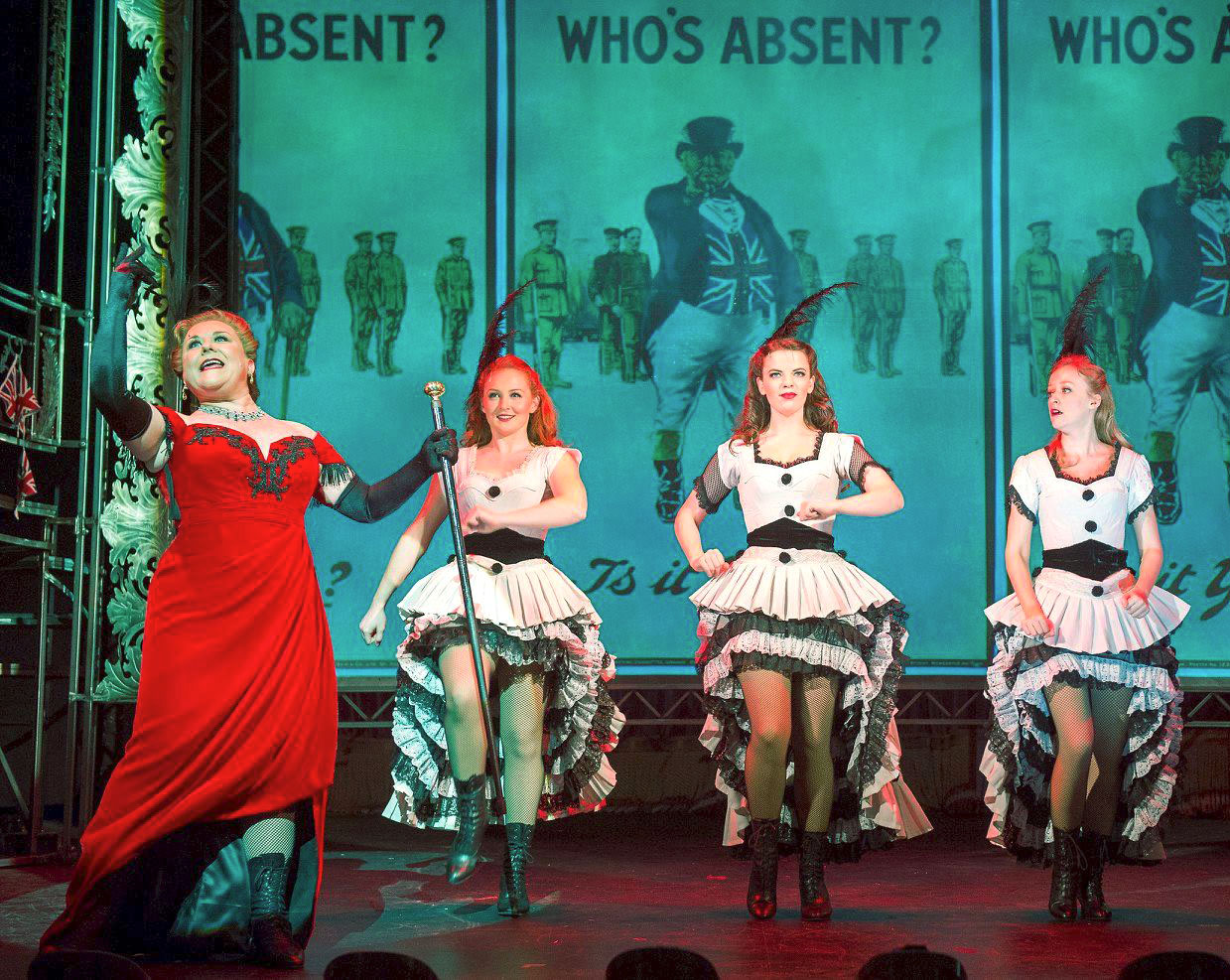Back in 1963 what were we doing? Basking on our sofas watching Lassie and the Dick van Dyke Show? Listening to Peter Paul and Mary sing Puff the Magic Dragon perhaps? The scary days of nuclear profusion were still with us, but we had reached a watershed moment when the idealism of the 1960s finally dawned and we could embrace the idea of Peace as an end in itself. While the atomic bomb and the Iron Curtain still loomed, a new un-conscripted generation demanded and expected new social freedoms. The idea of war in itself finally seemed absurd.
It was then, within this crucible of social change, left-leaning theatre director Joan Littlewood, with her partner Gerry Raffles, seized the moment to adapt Charles Chilton’s radio musical The Long Long Trail that had been produced for the BBC Home Service. The piece was a radio documentary that used facts and statistics, juxtaposed with reminiscences and versions of songs of the time, as an ironic critique of the reality of the war. The songs were found in a book published in 1917 called Tommy’s Tunes which had new lyrics written in the trenches to well-known songs of the era, many from hymns or from west end shows.
It was the irony within Littlewood’s adaptation that ignited the show. If anyone needed ammunition for why they were marching with CND, it was this that gave it to them. The juxtaposition of end-of-the-pier vaudeville fuelled by the lyrics of those who fought and who died in the conflagration proved an extraordinarily successful formula for Littlewood who was nominated, the first woman to be so, for a Tony Award for Best Direction of a Musical.
Now on tour fifty years plus later, and following an avalanche of centenary material about WWI over the last few months, Terry Johnson’s direction gives Oh What A Lovely War some new legs, if not the totally seductive ones of War Horse.
This play will certainly always retain its power to shock with statistics – an illuminated leader board spools the death tolls from the war throughout the evening, ensuring that any merriment we experience from the song routines is always laced with pathos. Contemporary posters are projected on to a screen. With lines like “Your Chums are Fighting, Why Aren’t You?” it’s easy to see why only the very strong-willed would have been able to resist the call-up propaganda.
There was however, a sense of some dust in the air. The Commedia dell’Arte Pierrots felt a little past their sell-by date. Perhaps that end-of-the-pier analogy just might have lost some of its relevance to a younger audience and could maybe do with a re-think. East Enders’ Ian Reddington seemed just a little too comfortable in his own skin as MC on the night, and while there were a few titters from the audience during his enactment of the sergeant incomprehensively drilling his troops, this over time has become something of a hackneyed joke. But there were some stand-out moments: Wendi Peters belted out ‘I’ll Make a Man of You’, and she and her fellow female singers and dancers added some zip to the night. Later the excellent Christopher Villiers played the hopelessly myopic General Douglas Haig at prayer: “I ask thee Lord for victory before the Americans arrive.” (The general’s actual words). But the most unsettling scene of all was surely that which featured capitalists discussing the war being “good for business”.
But throughout, it was the songs themselves that had the power to connect us to the inner thoughts of the unfortunates out in the trenches. Hush, Here Comes a Whizzbang, When This Lousy War is Over, and I Don’t Want To Be A Soldier just three amongst an extraordinary catalogue of 41 numbers performed on the night.
The show is lengthy, I’d argue too long, sometimes suffering a sense of déjà vu about repeated lines of troops being gunned down. The portrayal of national characteristics I felt sometimes bordered on being offensive (the accents were appalling), but perhaps I’m losing my sense of irony here. ★★★☆☆ Simon Bishop 10/03/15 at Bath Theatre Royal


